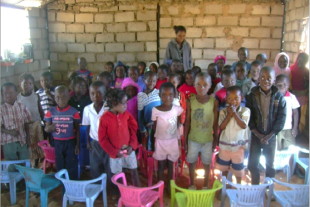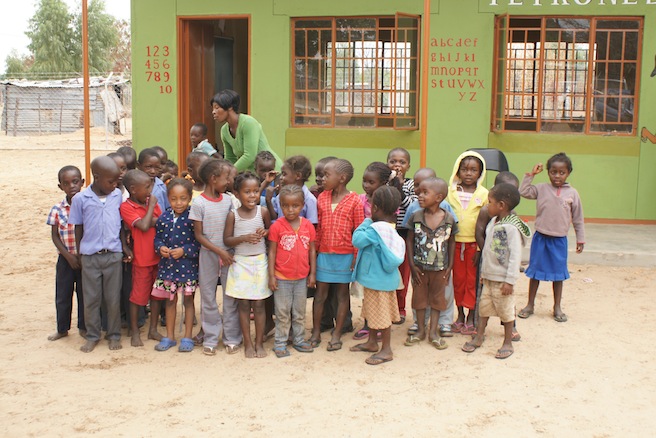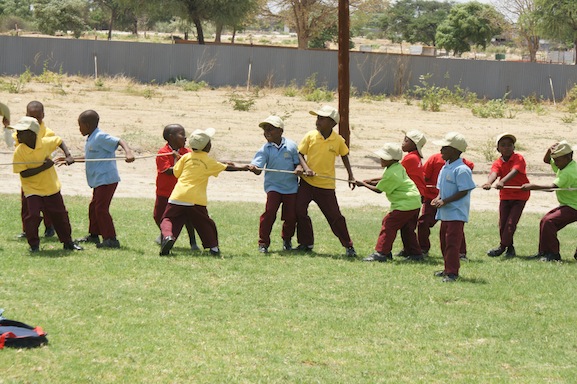The Mehozetu Project
Foundation Education and Integration for All
-
Themenbereich
Bildung -
Schwerpunkt
Waisen , HIV / AIDS -
Status
Laufendes Projekt -
Region
Namibia, Afrika
The Mehozetu Network supports orphans and vulnerable children in the Kavango Region of Namibia.
The Mehozetu Network, made up of ten pre-schools in the Kavango Region of Namibia, cares for Orphans and Other Vulnerable Children (OVC). The overall objective of the project carried out by CAFO (Church Alliance for Orphans) is to increase the capacity of the Mehozetu Network members to enable them to educate and care for orphans and vulnerable children. The project focuses on 3 areas: psychosocial support, educational assistance, food security and nutrition.
In the area of psychosocial support, the project focuses on the skills and capacity of teachers and caregivers to work with and help the children, as well as providing support to the caregivers themselves. All children supported by the network members are in one way or another affected by HIV and AIDS. Many have lost one or both parents, and all children have experienced sick and dying family or community members. These circumstances result in economic, but also social and psychological difficulties. The desired outcome in this area will be for children and caregivers to be able to deal with psychological and social issues in a healthy way.
The educational assistance focuses on the skills and knowledge of the teachers and caregivers in early childhood development, but also looks at the material and environment needed to make sure children can learn and develop. Early childhood is the most rapid period of development in a human life. All children supported by the network are aged between 3 and 7 years old. Although individual children develop at their own pace, all children progress through an identifiable sequence of physical, cognitive, and emotional growth and change. The positive effects of early learning can change the developmental trajectory of children by the time they enter school. A child who is ready for school has less chances of repeating a grade, being placed in special education, or dropping out of school. The overall outcome in this area will be that the children at the kindergarten level in the network have an improved capacity to learn and develop and are well-prepared to continue on to primary school.
The food security and nutrition support focuses on providing the children within the network with one nutritious meal per day, but also looks at more sustainable ways to secure healthy and nutritious food for children and caregivers, such as through the establishment of gardens and planting of fruit trees. Most children supported by the network come from a poor background. Parents or caregivers are not always able to provide more than one meal a day.



Copyright: Fondation EIFA
